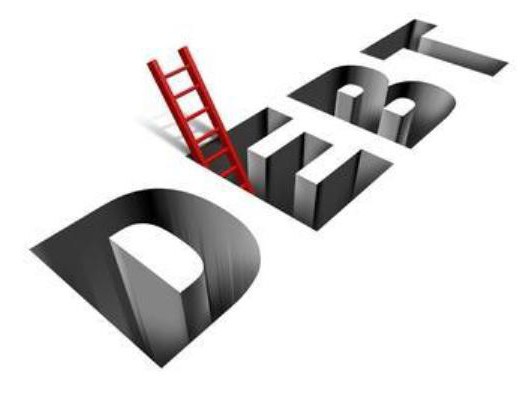Selling debts to individuals has long been nothing new or special. This case is quite official and legal. The first thought of shaved thugs who knock the last penny out of poor Russians is often erroneous. Although debt collection methods may vary, official collection agencies are required to act under the law.
How is all this going on? What can collectors do and what are they not entitled to? What is a cession agreement? Look for answers to these and other questions below.
What debts can I sell
Private debts are a very popular commodity in the market of financial and collection services. However, not every debt may be of interest to the respective structures. Debt collection from individuals is not a quick matter, so many factors matter here:
- debtor's solvency;
- amount of debt;
- opportunity and desire to repay a debt;
- the debtor has a family, work, property;
- other factors.
Selling individual debt to collectors is interesting only when a real possibility of a refund is visible. Simply put, a collector will be interested in your debt when it “earns” a profit. The cost of the loan itself may be only 1-2% of the real amount.
Most often subject to sale:
- debts on loans to individuals;
- loan debt;
- non-refundable amounts for supply-related contracts;
- outstanding contract.
How to sell debt to a collector
Banking structures quite often resort to the services of special collection companies. So financial institutions are trying to regain at least part of the bad, from their point of view, loans. It is customary to attribute such debts to agreements for which payments have not been made for more than a year.
Most often, problem loans are sold in bulk. That is, the bank forms a package of debts, and then offers it to several agencies at once, agreeing to a better offer.
On the one hand, it may seem that such a transaction is not beneficial to the creditor. After all, he loses a significant amount. However, on the other hand, using the resale of rights, the bank returns at least part of the money to itself. Yes, and the amount sold often consists of fines and penalties, and the body of the debt itself is usually not so great.
Collectors may refuse to purchase. This happens in cases where there is practically no opportunity to repay the debt. For example, the borrower has a low level of income or there is no property at all that could be foreclosed.
However, there are situations when it is impossible to sell a debt:
- compensation for moral damage;
- alimony;
- compensation for harm to human health.
Features of the assignment agreement or how to redeem a debt
If a buyer for the individual’s debt is found, then a contract of sale of the debt is concluded. Legally valid will call this document an assignment agreement. The subject here is the right of claim or a valid obligation. Simply put, this is an agreement on the assignment of rights to claim a sum of debt by a creditor to a third party. Moreover, the latter can be a registered collection company, as well as any private person.
Sale of debts of individuals does not provide for the consent of the borrower.However, it must be warned about the fact of the conclusion of such a transaction 30 days before its implementation.
Parties to the assignment agreement are:
- old creditor - a person who was originally borrowed;
- new lender - a person or organization with a right to demand repayment of a debt from a borrower.
Selling debts to individuals provides only for a change in lender. No other terms of the agreement may be changed. This means that the new owner cannot impose any other penalties or fines on the borrower than those set forth in the original loan agreement.
Receivables due
Least of all the sale of debts of individuals is carried out by means of a receipt. This is a paper testifying to the actual transfer of a specific amount by one person to another. A correctly executed receipt also stipulates the terms and conditions of the refund. Only after the expiration of the period specified in the receipt does the period of limitation begin to count down. This means that if the paper indicates that the amount has been borrowed for 180 days, then it is not possible to file claims for reimbursement before this deadline.
If the debt has not been repaid, then the lender has the right to sue or sell the receipt to collectors. It is worth noting that the return of a debt on the basis of a receipt is most often disputed in court. The reason may be its improper execution, conclusion of a transaction under the pressure of circumstances, financial inability to return funds, and so on. In this case, for the new owner of the rights, the debt also becomes “problematic”. That is why collectors are very reluctant to buy out receipts.
Return of debt under writ of execution
Much more willingly is the purchase of debts of individuals on writ of execution. Such a document is issued when the court has already been and the lender has confirmed his right to demand a debt by force. Since enforcement proceedings can take a very long time, it can be beneficial for the lender to sell the contract to the debt collector and quickly reimburse himself up to 50% of the amount due.
Before you realize the debt on the writ of execution, you have to get this document in court and submit it to the FSSP. The bailiff will open the corresponding production within 7 days. If subsequently the right of claim is sold, then the assignment agreement must also be provided to the bailiff. He must replace one of the parties to the enforcement proceedings with the new owner of the rights, which is the collector.
Note! The new recoverer cannot rely on a sum greater than indicated in the court decision. No additional penalties in this case work.
Pre-trial decision
Debt collection from individuals can be made at any time. That is, theoretically, your debt can be realized the day after you have been given the money. In practice, banks usually remind the debtor many times overdue, send notifications by letter and e-mail, and offer restructuring programs. If no action is taken, the debt will be sold sooner or later.
Some nuances of the issue
Although the sale of debt is the legal right of every collector, there are some features. It turns out that not every debt can be legally sold to another person.
Debt cannot be realized unless this is expressly written in the original loan agreement. If the agreement between the collector and the debtor did not initially provide for the transfer of the contract in case of default, it is impossible to sell the debt. It's illegal.
But there is a nuance. The norm is valid only until a court decision is received. If there is a writ of execution, the bailiff will act as a recoverer, and the lender is only the recipient of the funds. So, the debt can be sold.
What to do if your debt is sold
To begin with, it is worth visiting the bank branch in which the loan was issued. It is worthwhile to clarify the size of the debt that has formed and find out whether the debt has actually been sold to collectors.
Now you need to contact the new owner (collector) and clarify the following data:
- The basis on which the claim of debt is presented.
- Availability of a cession agreement It’s best to ask the manager to make a copy for you.
- The amount of debt that was purchased by the new lender.
- Opportunity and options for debt repayment.
Attention! You can start repaying debts only when you carefully examined all the documents, made sure of the legality of the requirements and received specific details of the new creditor.
If there is even the slightest doubt about the legality of what is happening, feel free to contact the court. And remember: the legal rights of debt collectors are severely limited. Debt collection agencies do not have the right to “knock out” money forcibly, either before or after a court decision.
The collector can only remind you of the existence of debt and ask for a refund. After a court decision, all rights to compulsory collection of funds and completely pass to the bailiff performer. Only he can describe property, withhold no more than half of the official salary, seize bank accounts and apply other measures. The collector in this case acts as a third party and does not participate in the repayment of the amount owed.